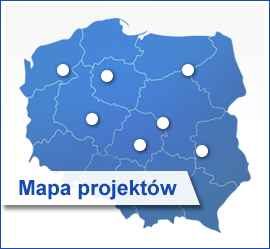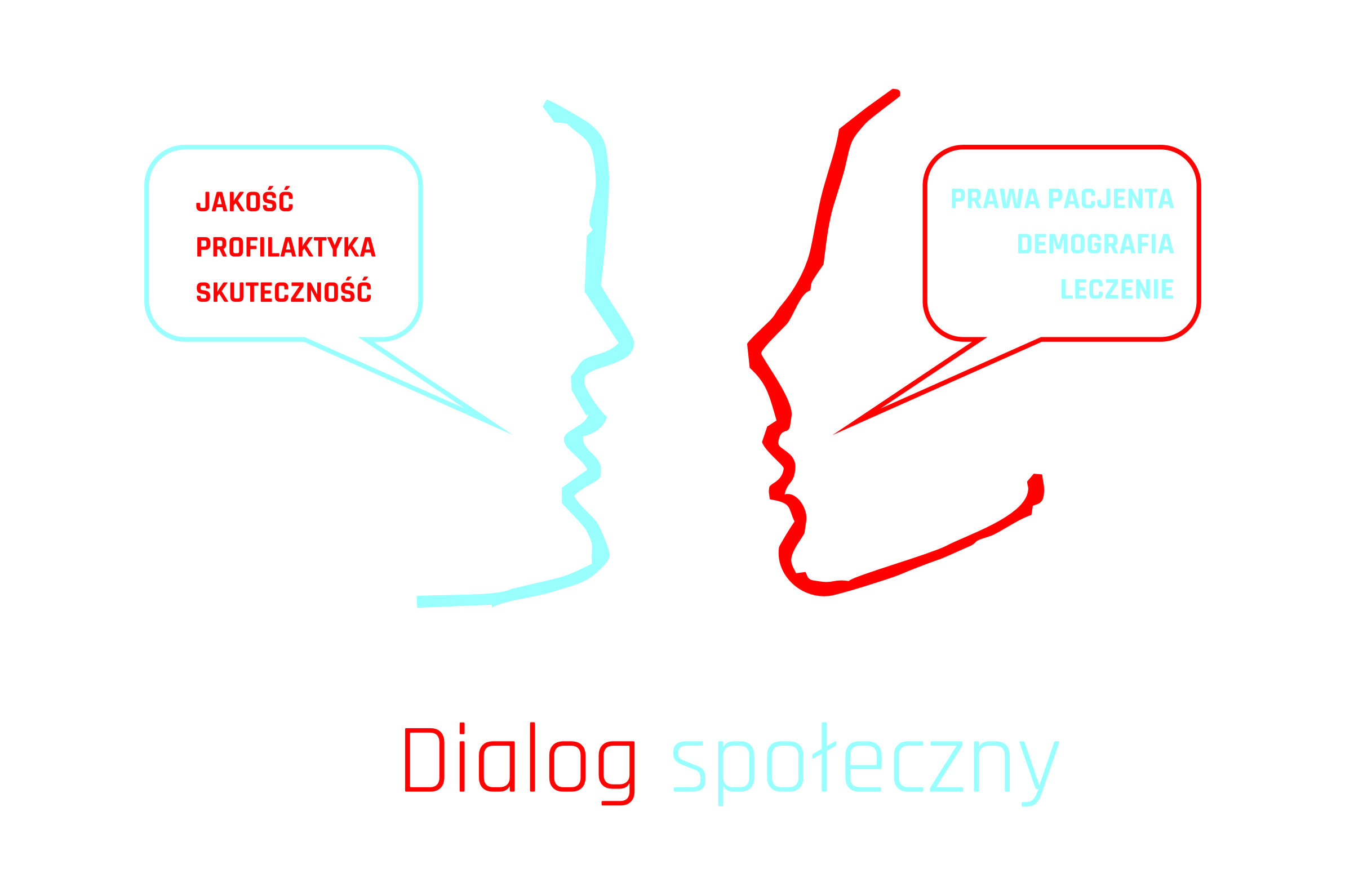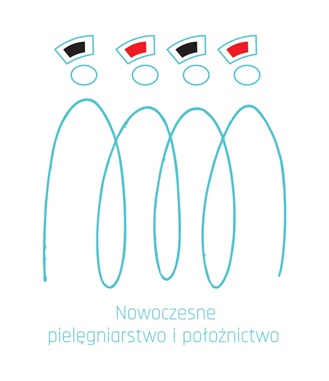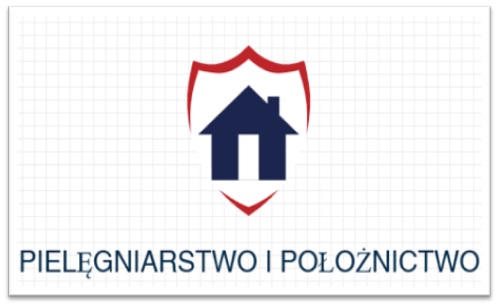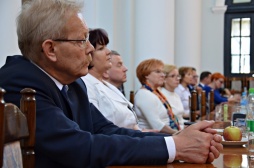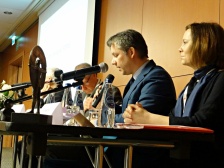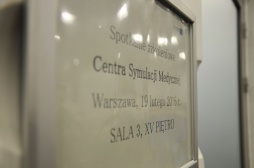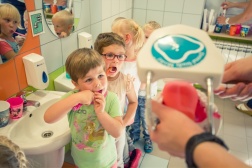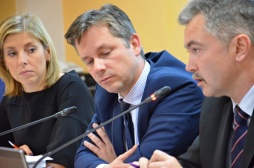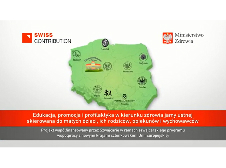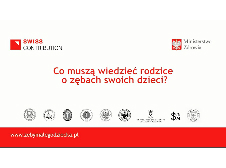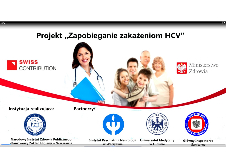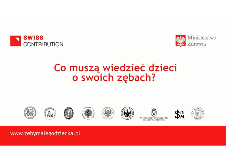GENERAL INFORMATION
1. What is the difference between the "Public health initiatives" area under the Norwegian Financial Mechanism and the same programme area under the EEA Financial Mechanism?
Programme area "Public health initiatives" is implemented under the EEA Financial Mechanism (programme area No 13) and under the Norwegian Financial Mechanism (programme area No 27). The difference consists in the sources of financing the Mechanisms: in the case of the EEA FM, the funds originate from Iceland, Lichtenstein and Norway, and in the case of the NFM, Norway is the Donor State.
Two programmes are going to be implemented in the area of the health care sector:
- "Development and better adaptation of health care to demographic and epidemiological trends" (programme area No 13 and 27).
- "Reducing social inequalities in health" (programme area No 27).
2. Are the dates of the calls for proposals under the programmes already known?
The process of programme approval by the Donor States is currently underway, and should end in the 4th quarter of 2012. Only then will the dates of calls be determined. The planned date of the open call is:
Q1 2013 - for Programme: Development and better adaptation of health care to demographic and epidemiological trends.
Q3 2013 - for Programme: Reducing social inequalities in health.
3. Is training for applicants envisaged, focusing on the preparation of application documents?
Yes, the Programme Operator will organise training for applicants. The training will be available in different parts of the country (a series of 4-8 sessions). Separate training series will be organised for each of the programmes, overlapping with the dates of the calls. A detailed training schedule will be published on the website of the Programme Operator www.zdrowie.gov.pl before the publishing of the call to a given Programme.
4. Which entities may apply for a grant under Programme: "Development and better adaptation of health care to demographic and epidemiological trends"?
Applications may be submitted by all Polish public and private entities, as well as non-governmental organisations constituted as legal persons and acting in the public interest, including:
- Health care institutions providing health services financed from public funds and their founding institutions;
- Health care institutions transformed into limited companies;
- Research institutes operating in the health care sector;
- Medical universities or public institutions of higher education carrying out didactic and research activities in the field of medical sciences;
- Nursing homes financed with public funds and their founding institutions;
- Non-governmental organisations operating in the health care sector;
5. What entities may apply for grants under Programme: "Reducing social inequalities in health"?
Applications to the open call may be submitted by poviats operating in Poland.
Programme PL07
APPLICANTS
1. May a limited liability company (Sp. z o.o.), whose shareholders are natural persons (e.g. a private nursing home) submit a proposal for the programme?
Subsidies may be applied for by publicly funded nursing homes, so if a private nursing home performs activities outsourced by a local administration authority, it may submit an application, but the activities have to be carried out in the project implementation and sustainability period.
2. May a private nursing home whose doctors or nurses have contracts with the NFZ apply for funding?
All health care institutions operating within the public health care system and acting as legal persons have the right to submit project proposals to the programme.
Nursing homes have to carry out activities outsourced by local administration authorities in order to obtain grants.
3. How should we understand a non-governmental organisation operating in the health care sector?
In accordance with Article 3 (2) of the Act on public benefit activities and voluntary work of 24 April 2003 and Article 1.5 (m) of the Regulations on the implementation of the EEA Financial Mechanism and the Norwegian Financial Mechanism 2009-2014 and the provisions of Programme PL07, a non-governmental organisation eligible under the Programme is:
(a) not a body of public finances sector as defined by the Act on public finance,
(b) a non-profit entity having a non-commercial purpose,
(c) independent of local, regional and central government, public entities, political parties and commercial organisations.
(d) a non-profit voluntary organisation established as a legal entity.
As regards activity in the health care sector, this means that the organisation has to carry out statutory activities in the field of health care.
Additionally, if a project concerns health care, the organisation has to operate under public funding scheme (e.g. have a contract with the NFZ).
4. May only universities and institutions of higher education carrying out didactic activity related solely to medical sciences apply, or also universities where medical sciences are one of many fields of studies and research?
Only medical universities or institutions of higher education carrying out didactic and research activity related to medical sciences may apply for funding, but it is not required for the activity in the field of medical sciences to be the only (or the major) field that the didactics and research of the applicant relate to.
5. Is it possible to transform a health care institution (SPZOZ) that was a Project Promoter of the aforementioned programme into a limited company during project implementation or its durability period?
Yes, if the SPZOZ assumes the liabilities resulting from the project contract and will still operate in the public health care system after its transformation.
Subject to the provision of Article 80 (4) of the Act on medical activity, according to which a limited company on the day of its transformation (through universal succession) assumes all rights and responsibilities of the independent public health care institution, the transformation of such a health care institution (SPZOZ) into a limited company during project implementation or its sustainability period is possible. A change of ownership is not significant, as long as the new company implements project objectives in a correct way in line with the project contract. As regards the evaluation of project sustainability, it will be done ex-post, more specifically as a result of a control carried out by relevant institutions, above all: the Programme Operator, the National Focal Point, the Financial Mechanism Office, the Tax Audit Authority.
ELIGIBLE MEASURES UNDER PL07 PROGRAMME AREAS
1. In the case of projects envisaging nursing homes' modernisation, is it required to provide care for the inmates as part of the non-investment part during project implementation, or is training for medical staff enough (and care for inmates will be provided in the sustainability period)?
Care for inmates (indicated group) does not have to be an element of project implementation - its non-investment part may include personnel training or other activities. Nevertheless, it is recommended to include care for inmates as part of a project and for it to take place during project sustainability period in order to guarantee the sustainability of project outcomes.
2. Is it possible to reconstruct a residential building/a school for the purpose of a nursing home?
Such transformation is possible, yet it needs to be taken into account that a nursing home has to operate under a public health care system at the time of submitting application. We further point out to the fact that the applicant has to legally posses the property in which the project will be implemented, which will allow for clearing doubts regarding possible grant awarding under the EEA FM and the NFM 2009-2014.
3. Is it possible to obtain a grant for comprehensive modernisation and extension of a gynaecology ward, or is the assistance limited to neonatology wards? Is it restricted to specialist facilities?
If the modernisation and extension are a part of a project in a selected area (e.g. perinatal care), there are no reasons to refuse a grant. The Programme Operator does not indicate selected wards eligible for support.
4. May a project in the area of health care adaptation to meet the needs of the population of chronically-ill and dependent people concern a hospice for children with neoplasms? Will an extension of a hydrotherapy pool be eligible?
Yes, a hospice for children with neoplasms may be an eligible project in the area of health care adaptation to meet the needs of the population of chronically-ill and dependent. An extension of an existing hydrotherapy pool may be eligible under the project.
5. In the case of health care facilities (ZOL), care and nursing facilities and hospices, is every cost resulting from the specifics of operation of a given unit eligible under patient care (e.g. ZPP provides care and therapeutic services, while ZOL only nursing and therapy)?
Costs resulting from the specifics of operation of a given applicant are eligible under the Programme.
6. Is it possible to finance a vaccination programme under the Programme?
Yes, if the vaccination programme is a part of a project that is in line with one of the three intervention areas, it may be financed under the project.
7. Is a purchase of an ambulance for a neonatal ward eligible?
If the ambulance is a significant part of a project in the field of perinatal care, the purchase may be eligible cost, as long as the total amount of investment expenditures under the project does not exceed 70% of the total eligible costs.
RULES OF PARTICIPATION IN THE CALL FOR PROPOSALS / PROGRAMME GUIDELINES
1. How many applications concerning various projects may be submitted by one applicant under a single call?
There are no limits in this respect, which means that the same Applicant may submit several different applications during one call to a given programme.
2. Is it possible to submit an application concerning a project that is already being implemented?
Theoretically yes, but its costs would be eligible only from the moment of issuing a decision on grant awarding - this also applies when a project consists of several parts or stages, of which each may be treated as a separate undertaking that takes place within the time framework specified in the programme.
3. What are the deadlines of expenditure eligibility under the Programme?
The initial date of expenditure eligibility is the date of issuing the decision by the Minister of Health on awarding a project grant - any expenditures incurred before this date are not eligible. The final date of expenditure eligibility in line with the legislation in force is 30 April 2016 .
4. Is it admissible to combine areas of intervention envisaged in the PL07 Programme?
Yes, a project may combine all three eligible areas of intervention identified in the Programme, but the applicant has to identify the priority area for a given project. If the complexity of activities within a project makes an unambiguous qualification difficult, then the area which constitutes the biggest priority and within which the greatest number of activities will be carried out should be selected.
5. Is it required for the applicant to exist for at least one year and to conduct operations covered by the project?
There are no requirements concerning the period of the applicant's operation in the scope covered by the application. Nevertheless, applicants will be obliged to demonstrate experience with regard to activities under the project, and this will be one of the criteria of the content-related appraisal.
6. Will the Programme Operator strive to maintain financial proportions while dividing funds for the three areas of intervention?
Evaluation is carried out jointly for all three areas.
7. Is a partner also authorised to lodge an appeal in the appeal procedure in the case of partnership projects?
No, an appeal may only be lodged by the applicant who represents the partner in relations with the Programme Operator.
8. Is it possible to appeal against the decision on the evaluation of the application?
Applicants may appeal against the results of formal review and content-related appraisal. In both cases, the appeal follows a two-tier procedure. First, the Applicant lodges an appeal to the Programme Operator. In the case of rejection of the appeal by the Programme Operator, the Applicant may lodge an appeal to the National Focal Point. The NFP may uphold the decision of the Programme Operator or refer the application for re-evaluation. The NFP's decision is final and may not be appealed against.
It is impossible to appeal against the decision of the Selection Committee, which approves the ranked list of projects after the end of the content-related appraisal and pursuant to Article 6.5. of the Regulation on the implementation of the Norwegian Financial Mechanism and the EEA Financial Mechanism 2009-2014, may modify it in justified cases.
9. How should I understand the multiplier effect - criterion 6 on the content-related appraisal chart in the field of finances and management?
The multiplier effect is a situation in which each effect of taken measures will be multiplied. It takes place when a project is not a one-time event, but is to some extent continued by an entity and contributes to its development, has a positive impact on all project participants and final beneficiaries. The multiplier effect is connected with stimulating activity in a given area. An applicant should analyse whether subsequent undertakings related to the project will be initiated after its completion.
10. Is it possible to have a partner from countries other than the Donor States, and are the costs of such a partnership eligible? Are there any restrictions concerning partner's legal capacity?
Project partners may include public or private entities, commercial or non-commercial entities, as well as non-governmental organisations with a seat in a Donor State, a Beneficiary State or a country from outside the European Economic Area that shares a border with an appropriate Beneficiary State, or an inter-governmental organisation that actively participates in project implementation and contributes to it efficiently.
Polish partners may only include entities that meet the criteria of participation in an open call (i.e. possible applicants under the Programme).
Partner's expenditure will only be considered eligible if a partnership agreement is signed between the applicant and the partner, prepared in accordance with the guidelines of the Programme Operator.
11. Is contribution in-kind considered eligible cost under the Programme?
Contribution in-kind may be considered eligible cost in the case of projects implemented by non-governmental organisations. Contribution in-kind may represent up to 50% of co-financing required by the programme for a project.
12. What is the grant rate for projects proposed by a hospital transformed into a limited company, which operates in a public financing scheme?
All applicants to the PL07 programme are subject to the same grant rate, which represents up to 80% of eligible project costs.
13. May medical equipment purchased under a project be used outside the project under a contract with the National Health Fund (NFZ)?
Medical equipment purchased under a project may be used free of charge to serve the target group of the PL07 Programme during project implementation and its sustainability period.
Medical equipment may be used during the implementation and sustainability period under a contract with the NFZ if it is used free of charge for the Project Promoter.
14. Is a prevention and examination programme required during project implementation if equipment is purchased under the project?
A project that envisages the purchase of medical equipment should also envisage its use during the implementation and sustainability period (hence a prevention programme is highly recommended). A failure to meet this requirement does not lead to rejecting the project due to a failure to meet the criteria of eligibility of measures, but it will definitely entail a lower mark during the content-related appraisal carried out by external experts.
INVESTMENT MEASURES UNDER THE PROJECT/ EXTENSION, RECONSTRUCTION, RENOVATION
1. How should I understand reconstruction?
Reconstruction - consists in construction works, as a result of which the technical or functional parameters of an existing structure change, with the exception of characteristic parameters, such as: cubic volume, gross covered area, the height, length, width or number of storeys; in the case of roads it is admissible to change characteristic parameters as long as the road line is not changed. A reconstruction requires a building permit.
2. How should I understand extension?
Extension - in the construction industry, a type of construction works as a result of which a new part of an existing structure is created. As a result of an extension of a structure, its gross covered area (and usable floor area) increases.
3. How should I understand renovation?
Renovation involves construction works carried out in an existing structure consisting in the reconstruction of the original state that are not part of on-going maintenance, during which it is allowed to use building materials other than originally used; (a change in the functional layout - partition walls, structural parts of the building, e.g. widening door openings is not a renovation but a reconstruction)
4. Is investor's supervision considered an investment cost?
Yes, because it is a necessary cost of a given investment project.
5. Most SPZOZ do not own occupied properties, and use them free of charge, while the properties are owned by the founding institution. Therefore, if a project envisages a modernisation of a building used by the SPZOZ, but owned by the founding institution (a local government authority), does the ownership title have to be transferred?
If a project envisages building modernisation or an extension on a land owned by a founding institution (local government authority) and used by SPZOZ, it is not necessary to transfer the ownership title to the property. A legal title that guarantees project implementation and allows for its sustainability in a specified period will be enough to apply for the EEA FM and the NFM funds. The right of use is one of the options. However, it needs to be noticed that the risk related to holding/keeping a proper legal title during the entire period of project implementation
(and keeping the said title during the sustainability period) is taken by the Project Promoter.
6. Is it possible to submit a project proposal under "design and construct" formula?
No, when applying to the PL07 Programme, full project documentation necessary to obtain a building permit or a request for a building permit are required.
APPLICATION DOCUMENTS/LIST OF ANNEXES
1. Will it be required to present a building permit at the time of submitting application?
In the case of projects that envisage extension or reconstruction, it will be required to submit a copy of a building permit, and in the case of a renovation - a copy of the notification of the planned construction works before signing a project contract. At the time of submitting application, it will be possible to present a request for an appropriate document - detailed information can be found in the Application form user guide.
2. In what language should the application for the PL07 Programme be submitted?
The application shall be prepared in Polish.
3. Is a power of attorney for the person signing the application form required in each case?
If the person signing the application is a person statutorily authorised to represent the applicant, then a power of attorney is not required. Otherwise a power of attorney is required.
4. What annexes shall be attached to the programme application?
The application should include all annexes required by the Application form user guide. In the case of those annexes that relate to the investment part, it is possible to deliver them upon signing the project contract.
5. What document shall be submitted in order to confirm own contribution required for the project?
The types of documents required to confirm that own contribution has been secured are specified in the Application form user guide.
6. What body is authorised to issue a document specified in the Application form user guide as a security of co-financing with own funds in the form of a resolution of intent of a competent body?
The constitutional documents of the applicant (e.g. the charter) specify what authority is competent to make decisions on financial matters and to incur liabilities. Therefore, it is the Project Promoter that should identify what body is competent. As regards the question whether a Board of Trustees, which is an initiating and opinion-forming body of the founding institution and the advisory body for the manager, referred to in the Act of 15 April 2011 on medical activity), may issue a resolution, the answer is no. Nevertheless, if the provisions binding for the applicant say that this body should give its opinion on the resolution, the applicant should present the Programme Operator with the resolution of a competent body with the opinion of the Board of Trustees.
Moreover, if stipulated by the documents constituting the applying entity, the resolution may take a different form, suitable for the specific of the entity.
7. Will it be possible to change the source of financing own contribution during project implementation in relation to the one indicated at the stage of submitting an application?
The document confirming the security of own contribution is verified at the stage of application evaluation, after which it constitutes an annex to the project contract. Consequently, this means that:
(a) Before the project contract is signed, it is impossible to introduce changes to the application documents (and the document securing own contribution forms a part of documentation),
(b) during project implementation, a change in the source of financing of own contribution would require making an amendment to the project contract, which it is, naturally, possible.
8. Is it enough to have a required amount of funds on the bank account (company's account), whose value will be confirmed with an account statement or working capital credit (demonstrated on the account as funds to be used)?
An account statement confirms funds as of a given day and may not be a guarantee of having sufficient funds in the future; therefore, it may not be a document that confirms that own contribution has been secured.
A working capital credit is allocated to the financing of the ongoing operation of an enterprise, e.g. on the purchase of furnishing, goods, while the document has to secure the implementation of a project that consist of an investment and non-investment part, and not the ongoing operation of an enterprise; therefore, it may not be considered a document that confirms securing own contribution.
9. May the resolution of intent on securing funds for investments and the resolution of intent on the authorisation to incur liabilities exceeding a given budget year be included in a single resolution of intent, in which appropriate paragraphs will specify funds secured for investments and non-investment expenditure? If applications are submitted by several applicants, for which own contribution will be specified in the resolution of intent, will one resolution be enough or should they be prepared separately for each applicant?
An applicant has to demonstrate secured funds for the investment and non-investment part of the project concerning the period of project implementation with breakdown of amounts into years. We do not specify whether it has to be secured in a single document or in two documents, but the following conditions have to be met.
If an application is submitted by several applicants, it would be more appropriate to present a resolution of intent separately for each applicant. The presentation of a single resolution for several applicants is possible, but the document has to clearly demonstrate that funds are secured for each project (secured amounts for each year broken down into investment and non-investment expenditure have to be clearly assigned to individual projects).
10. May own funds be secured in the form of a loan commitment issued by a financial institution, or does the security have to be obtained from a bank?
Only a loan commitment from a bank is admissible.
11. Is it possible to secure own contribution with an insurance guarantee for the value of this contribution - will the guarantee be enough to confirm our readiness to implement projects, the subsidies to which we apply for?
An insurance guarantee may not be considered a confirmation of securing own contribution because it is only the guarantor's commitment to pay an amount specified in the guarantee. The document that confirms securing funds for co-financing has to include the name of the measure (project title) and the amount of security broken down into years and investment and non-investment expenditure - the document has to clearly relate to the project. An insurance guarantee is only a guarantee of payment (but does not specify the aforementioned details)
12. May funds blocked on the bank account, with regard to which a bank issues a document confirming their block for the purpose of securing own contribution in the call for proposals for grants from the EEA FM and the NFM 2009-2014 serve as a confirmation of having own contribution?
The catalogue is closed, and such a document is not envisaged.
13. May a Multiannual Financial Prognosis confirm securing funds for project co-financing instead of a Multiannual Investment Plan?
If the Multiannual Financial Prognosis, referred to in the Act on public finance, is an equivalent of the Multiannual Investment Plan for multiannual undertakings, it may serve as the document confirming securing funds for project co-financing.
CONTRACT WITH THE NATIONAL HEALTH FUND (NFZ)
1. What period does the contract with the NFZ relate to?
The requirement to have a contract signed with the NFZ relates to the period of application submission, project implementation and project sustainability.
2. What will be the consequence if a Project Promoter fails to be awarded a contract with the NFZ during project implementation or sustainability period?
A lack of contract with the NFZ will mean that a Project Promoter fails to meet the requirement to operate within the public health care system indicated in the Programme. If a contract expires during project implementation or sustainability period, a part of funds has to be returned or a project contract may be terminated unless the Project Promoter proves in a different way that it still operates in the public health care system.
3. May a non-public health care institution (NZOZ) whose main activity consists in long-term care that is covered in 100% by the NFZ, but which derives revenues from commercial services, apply for financing under the PL07 Programme?
The fact that the applicant (NZOZ) provides commercial services and derives revenues from them that are unrelated to the subject-matter of the application, is not a reason to exclude the applicant from the Programme, as long as they are completely unrelated to the subject-matter of the project during project implementation and sustainability. Breaking this rule will lead to the loss or return of the granted funds.
4. How should I understand the requirement to have a contract with a voivodeship branch of the National Health Fund in order to prove that the applicant operates in the public health care system?
In accordance with the programme documents, health care institutions have to operate in the public health care system, i.e. have a contract with a voivodeship branch of the National Health Fund or a different entitlement to provide services under the public health care system with regard to services that are covered by the project. In the case of a contract with the voivodeship branch of the National Health Fund this means that the applicant has a contract for this part of operations that are planned under the project. For example, if a project is to be implemented in a hospital ward located in a given voivodeship, a "hospital treatment" type of contract is required concluded with a voivodeship branch of the National Health Fund having jurisdiction over the area covered by the planned project.
On the other hand, if an application concerning health care is to be submitted by an eligible applicant other than a health care institution or a nursing home, it needs to be remembered that support is only to be provided for non-business activity of the applicant. If such an applicant is a founding institution of a health care institution that will implement the project, this health care institution has to have a contract with a voivodeship branch of the National Health Fund or a different entitlement to provide services under the public health care system with regard to services that are covered by the project. However, it is also possible that the aforementioned eligible applicant other than a health care institution or a nursing home is not a founding institution of a health care institution, but will select the provider of health care services during project implementation.
For your convenience, we provide here an excerpt from the Ordinance of the Minister of Health of 6 May 2008 on general conditions for agreements on providing health care services (Journal of Laws No 81, item 484), according to which agreements may concern the provision of the following services:
(1) primary care;
(2) outpatient specialist care;
(3) hospital treatment;
(4) psychiatric care and addiction treatment;
(5) therapeutic rehabilitation;
(6) nursing and welfare services as part of long-term care;
(7) dental treatment;
(8) spa treatment;
(9) first aid and sanitary transport;
(10) preventive health programmes;
(11) health services contracted separately;
(12) supply with medical devices consisting of orthopaedic items and aids;
(13) health programmes;
(14) medical rescue services;
(15) palliative and hospice care.
We further remind you that the application should specify the source of financing health care services (e.g. a contract with NFZ) in accordance with the Application form user guide. It is required to specify what services are covered by the public financing agreement in terms of the content of the agreement and their category (e.g. a description of procedures included in the contract with the indication of their category in accordance with the list above) together with a justification that the held contract concerns services covered by the project.
PROJECT PAYMENTS
1. The Programme mentions free provision of services under the project. Yet pursuant to Article 18 of the Act on public health care services, a person treated in a care and nursing facility shall bear the costs of boarding and accommodation in the amount calculated on the basis of the said act. May I charge for these services in such a situation?
The principle of free provision of services under a project concerns the provision of health care services to a group of people covered by the project. The boarding and accommodation costs should be borne in line with the provisions of the binding national law.
2. May the project generate profit during its implementation and sustainability period?
In accordance with the Applicant's Manual - Principles of application preparation and participation in the call for proposals: "Only non-commercial projects shall be eligible for support under the Programme" (point 4.2 of the Manual) and "Projects under the Programme shall not generate profits. Services planned under the projects shall be provided without discriminatory practices towards final beneficiaries and free of charge." (point 7.8 of the Manual). Additionally, applicants in the case of which support might take the form of state aid shall be rejected at the stage of formal review (point 4.4 of the Manual).
This requirement means that the Project Promoter may not obtain financial gains as result of the project (e.g. charge the final beneficiaries). Eligible project expenditure shall be understood as actual costs borne by the Project Promoter that are not financed with other means or other funds (avoiding double funding), i.e. the Project Promoter may not settle a given expenditure (e.g the cost of medical examinations) under a project and a contract with the National Health Fund (NFZ). The costs of examinations envisaged in the project budget shall be settled under the project. A contract with NFZ confirms applicant's operation in the public health care system (point 4.4 of the Manual).
In order to meet the eligibility criterion under the Programme, nursing homes have to operate in the public health care system, i.e. they have to be run by a local government authority or carry out activities ordered by local government authorities at the time of applying for funds, during the entire period of project implementation and in the sustainability period after project completion. The Project Promoter is further required to obey the binding national and Community law (e.g. Article 60 of the Act on social assistance and charges for a stay in a nursing home). The requirement not to generate profits and to provide services without discriminatory practices towards final beneficiaries and without charging them concerns services to be provided under the project, e.g. personnel training, the use of purchased equipment.
Both during project implementation and its sustainability period, an institution may not obtain financial gains as a result of project implementation. This means e.g. that the infrastructure purchased under the project may not be used for commercial purposes. Such use would be contrary to the objectives of the Operational Programme and might lead to the return of the entire or a part of the grant. This issue shall be regulated in the project contract and reviewed individually for each project, taking its specifics into consideration.
FINANCES/REIMBURSEMENTS/PRINCIPLES OF PROJECT IMPLEMENTATION
1. Is it necessary to prepare separate budgets of costs borne by the Applicant and by the Partner?
Partner costs have to be recognised as an item of specific project budget attached to the application. Additionally, provisions concerning financial arrangements between the applicant and the partner, including the provisions on which partner's expenditure may be reimbursed from the project budget, have to be included in the partnership agreement. The Project Promoter settles all costs of the project, both own costs and the costs borne by the partner, recognising the amounts of expenditure in a given period in the payment claim.
2. Do management costs of people involved in project implementation have to be reimbursed on the basis of an employment contract, or may they be reimbursed on the basis of a contract of mandate?
Under the projects, people may be engaged to manage the project (management costs) under an employment contract and under other civil-law agreements. However, it needs to be remembered that only reimbursements concerning activities directly related to the project are eligible.
3. Should a timesheet be applied to calculate the time of work of an employee with an employment contract (full-time employee) who is temporarily delegated to implement the project?
If employees are delegated full time, it is enough to change their scope of responsibilities. If an employee is delegated only part time, a timesheet is required. It is also required to document presence at work e.g. with a monthly attendance list.
4. Is VAT eligible cost?
VAT is eligible only if legal regulations prevent Project Promoter from recovering it - otherwise it is not eligible. The applicant shall submit a statement on VAT eligibility attached to the application.
5. Should the amounts provided in the application budget be given net or gross?
In the application budget, costs shall be given gross, as long as the cost of VAT is eligible for financing under the Programme. If VAT is not eligible because the Project Promoter may recover it, the application should include net amounts and a comment on non-eligibility of VAT and the amount of expenditure.
6. May the transfer of funds by a local government authority (founding institution) in the form of a grant for project implementation under the EEA FM and the NFM be qualified as the transfer of public funds for the implementation of projects financed also with other non-refundable means from foreign sources subject to separate provisions, referred to in Article 114 (1) (4) of the Act on medical activity?
In accordance with Article 55 (1) (4) in connection with Article 114 of the Act of 15 April 2011 on medical activity (Journal of Laws No 112, item 652), an independent public health care institution may obtain public funds for the implementation of projects co-financed with means from the Community budget or non-refundable means from the assistance granted by the member states of the European Free Trade Association (EFTA) or other non-refundable means from foreign sources subject to separate provisions. Since according to the definition of "public funds" provided in Article 5 (3) (2) of the Act of 27 August 2009 on public finance (Journal of Laws No 157, item 1240, as amended) funds allocated to project implementation under the EEA FM and the NFM 2009-2014 are non-refundable means from the assistance granted by the member states of the European Free Trade Association (EFTA), it is possible to award a grant by a local government authority. Issues related to the rules of public funds' transfer to health care institutions are regulated in Section V of the Act on medical activity, i.e. in Articles 114-116. Article 115 (3) of the Act on medical activity indicates entities that may transfer public funds (also in the form of grants), which include a local government authority.
7. Is it required to have a separate bank account for the purposes of the project?
Yes, the Project Promoter is obliged to open a separate bank account for the purposes of the project, whose number shall be provided in the project contract.
8. Is it possible to provide the partner with interim payments? Should possible collected interest also be transferred to the Operator's bank account?
The Operator transfers the EEA FM and the NFM grant funds to the account of the Project Promoter provided in the project contract. The settlements between the Project Promoter and the partner have to be regulated in the partnership agreement.
However, it needs to be remembered that under the Programme, only actually incurred expenditures are reimbursed. Therefore, advance payments may only be settled when the final payment for a service or delivery is settled. Interest on FM grants should be returned to the account specified by the Operator.
9. How should indirect costs be settled under the Programme?
The method of calculating indirect costs and their maximum amount are specified in the project contract. The method of calculating indirect costs of the project partner is specified in the partnership agreement between the Project Promoter and the project partner. In the case of indirect costs, there are two options of reimbursement under the Programme:
(a) expenditures are identified and reimbursed on the basis of actual indirect costs for those Project Promoters and project partners that have an analytical accounting system to identify their indirect costs as indicated above,
(b) as a flat rate of up to 20% of total direct eligible costs excluding direct eligible costs for subcontracting and the costs of resources made available by third parties which are not used on the territory of the state of the Project Promoter.
10. How to determine which expenditures are investment expenditures?
Investment expenditures are all expenditures related to the purchase, depreciation or leasing of equipment or investments in a property of unit value exceeding PLN 3,500. However, if according to the accounting policy of a given entity, an investment below PLN 3,500 is classified as an investment expenditure, the applicant should act in line with applicable regulations - nevertheless, this rule does not apply to a reverse situation, i.e. each investment amounting to PLN 3,500 or more shall be treated as investment expenditure under the PL07 Programme.
11. Should the reserve amount be broken down into an investment and non-investment part? Does it affect the share of investments in the total project costs?
In a detailed budget, the value of the reserve does not have to refer to the category of expenditure (in the investment/non-investment measure column it is possible to write "not applicable"). However, it needs to be remembered at the stage of implementation that an increase in the value of measures funded from the reserve may not lead to exceeding the binding limits concerning e.g. investment expenditure or project management costs.
POPRZEDNIĄ
NASTĘPNĄ
NIEŚCISŁOŚĆ
Ministerstwo Zdrowia
Ilość fotografii: 7









